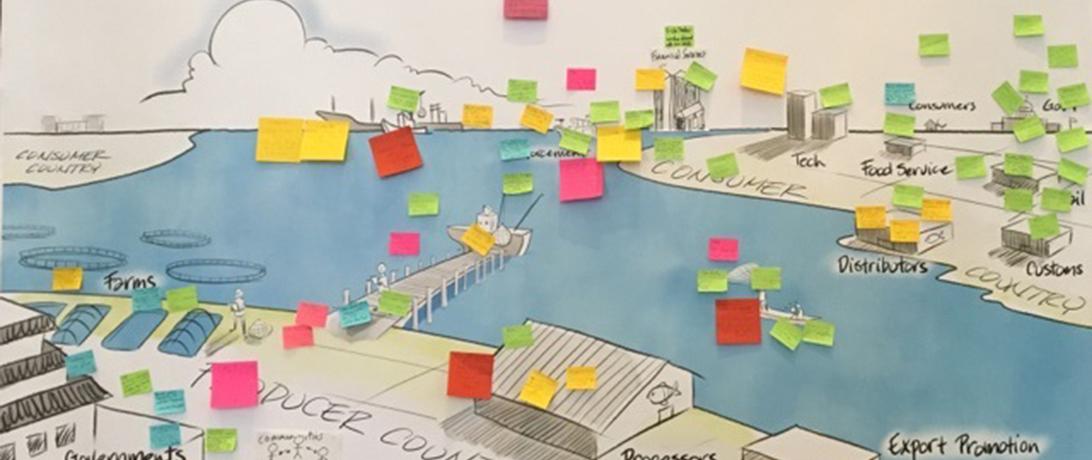London, UK – Secure Fisheries Director, Kaija Hurlburt, participated in a two-day DataLab hosted by the Seafood Alliance for Legality and Traceability (SALT) to accelerate learning and support collaboration on innovative solutions to sustainable and legal fisheries in the EU and Africa.
The DataLab brought together nearly 40 representatives from a range of foundations, NGOs, governments, universities, and the seafood industry. Participants identified four key challenges in European and African fisheries including obtaining and transparently sharing data on fisheries and fishing activities across the value chain, from catch to final sale. Kaija represented Secure Fisheries by providing insights and guidance related to the specific challenges faced in the Horn of Africa, Lake Victoria, and the Western Indian Ocean with an emphasis on the risks that illegal and unsustainable fisheries pose for fisheries conflict.
SALT is a global alliance for knowledge exchange and action to promote legal and sustainable fisheries through improved transparency in supply chains. SALT is hosting three regional DataLabs in 2018 that will cover the Americas, Asia, and the European Union and Africa. They will set the foundation for a five year project to realize improvements in fisheries sustainability and marine biodiversity through enhanced traceability and transparency. SALT envisions that this will enable and incentivize stronger fisheries management and improve industry self-regulation.
